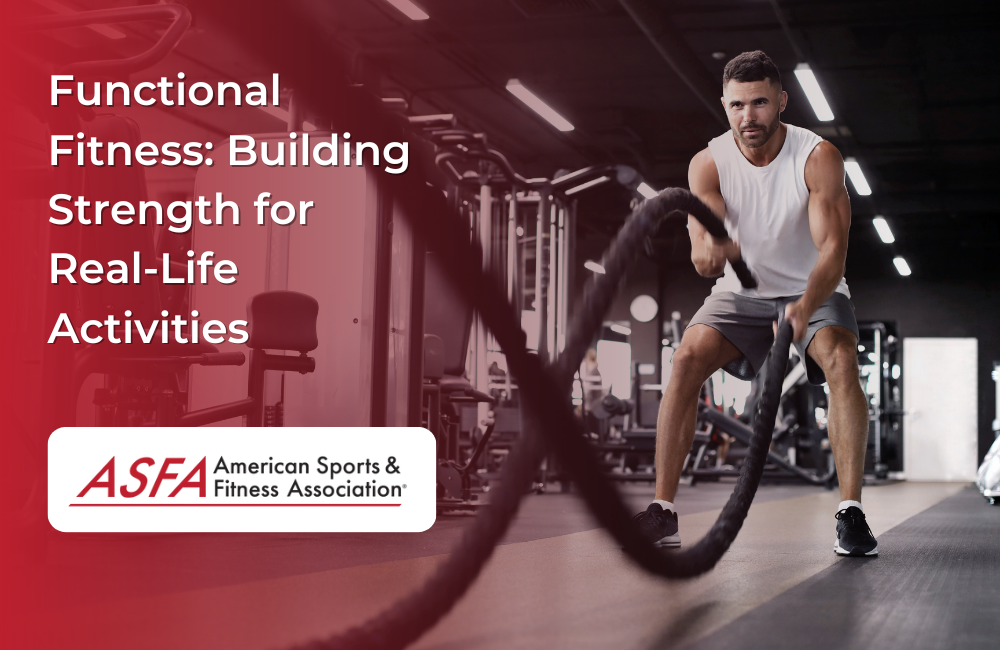Functional fitness has gained popularity in recent years as a holistic approach to exercise that focuses on improving strength, flexibility, and endurance to enhance one's ability to perform everyday activities and prevent injuries. Unlike traditional strength training that isolates specific muscle groups, functional fitness aims to train the body as a whole, emphasizing movements and exercises that mimic real-life actions. In this article, we'll explore the principles, benefits, and exercises associated with functional fitness.
Principles of Functional Fitness:
Functional fitness is guided by several core principles:
- Functional Movements: Exercises are designed to replicate natural, everyday movements like squatting, lifting, pushing, pulling, and twisting.
- Multi-Joint Exercises: Functional fitness emphasizes compound exercises that involve multiple joints and muscle groups working together.
- Balance and Stability: Balance and stability training are essential components to improve coordination and prevent falls.
- Core Strength: A strong core is central to functional fitness, as it stabilizes the spine and supports various movements.
- Flexibility and Mobility: Maintaining good range of motion and joint flexibility is crucial for functional fitness to prevent stiffness and injury.
Benefits of Functional Fitness:
- Improved Everyday Functionality: Functional fitness enhances your ability to perform daily activities, such as carrying groceries, lifting children, or getting in and out of a car.
- Enhanced Balance and Coordination: Functional fitness exercises challenge your balance and coordination, reducing the risk of falls and injuries, especially in older adults.
- Functional Strength: This type of training builds practical strength that translates into real-life tasks.
- Injury Prevention: Functional fitness helps identify and correct muscle imbalances and weaknesses, reducing the risk of injury.
- Efficient Workouts: Functional exercises often involve multiple muscle groups, making workouts time-efficient.
- Increased Core Stability: Core strength gained from functional fitness is vital for overall stability and posture.
Examples of Functional Fitness Exercises:
- Squats: Mimicking the motion of sitting and standing, squats strengthen the lower body and improve functional leg strength.
- Deadlifts: This exercise replicates the action of picking up objects from the ground, working the back, hips, and legs.
- Push-Ups: Strengthening the chest, shoulders, and triceps, push-ups are an excellent upper body functional exercise.
- Planks: Planks target the core, enhancing stability and posture.
- Lunges: Lunges improve balance and strengthen the legs, mimicking movements like climbing stairs.
- Farmer's Walk: Carrying weights in each hand as you walk enhances grip strength and simulates carrying groceries.
- Medicine Ball Twists: This exercise involves rotating the torso with a medicine ball, promoting core strength and mobility.
- Step-Ups: Using a bench or step, step-ups engage the legs and improve coordination.
Incorporating Functional Fitness into Your Routine:
To include functional fitness in your workout routine, consider the following tips:
- Start Slowly: Begin with exercises appropriate for your fitness level, focusing on proper form and technique.
- Consult a Trainer: If you're new to functional fitness, consider working with a certified trainer who can create a personalized program and ensure correct form.
- Vary Your Routine: Incorporate a variety of functional exercises to target different muscle groups and movements.
- Progress Gradually: As you become more comfortable with functional exercises, gradually increase the intensity and complexity of your workouts.
- Listen to Your Body: Pay attention to your body's signals and avoid overexertion or pushing through pain.
- Combine with Cardio: Include cardiovascular exercise in your routine to improve overall fitness.
Functional fitness is not only about building a strong physique but also about enhancing your ability to engage in daily activities with ease and confidence. Whether you're a seasoned athlete or just starting your fitness journey, incorporating functional fitness exercises can lead to improved functional strength, greater mobility, and a reduced risk of injury in your daily life.





